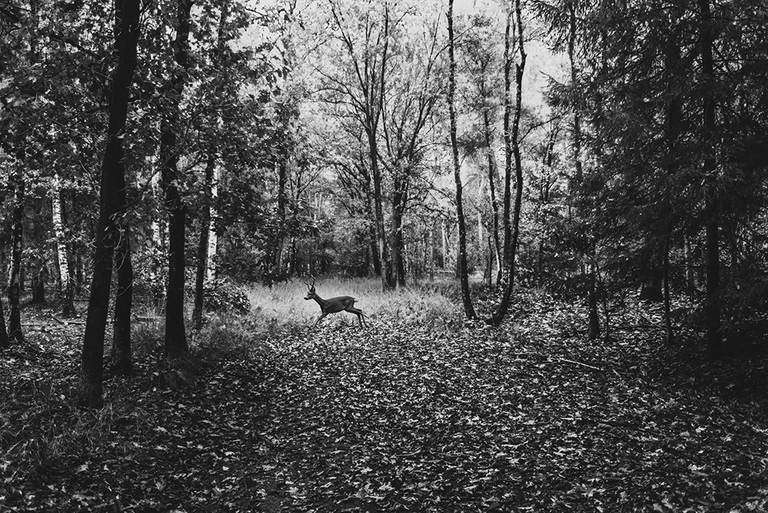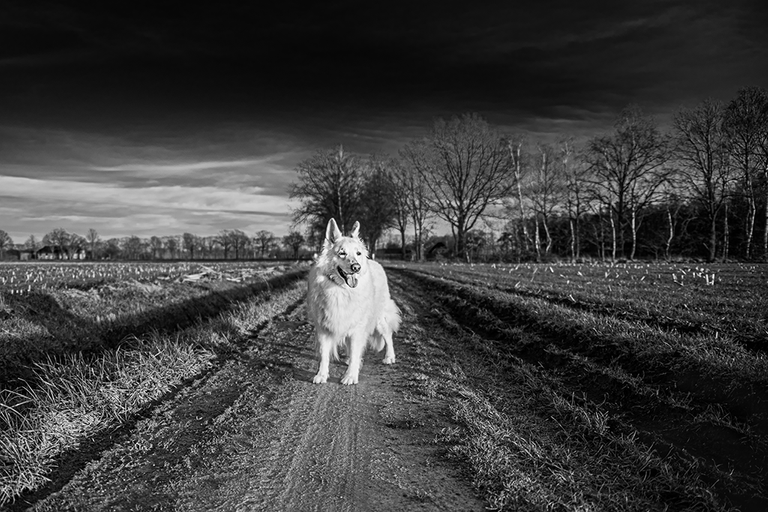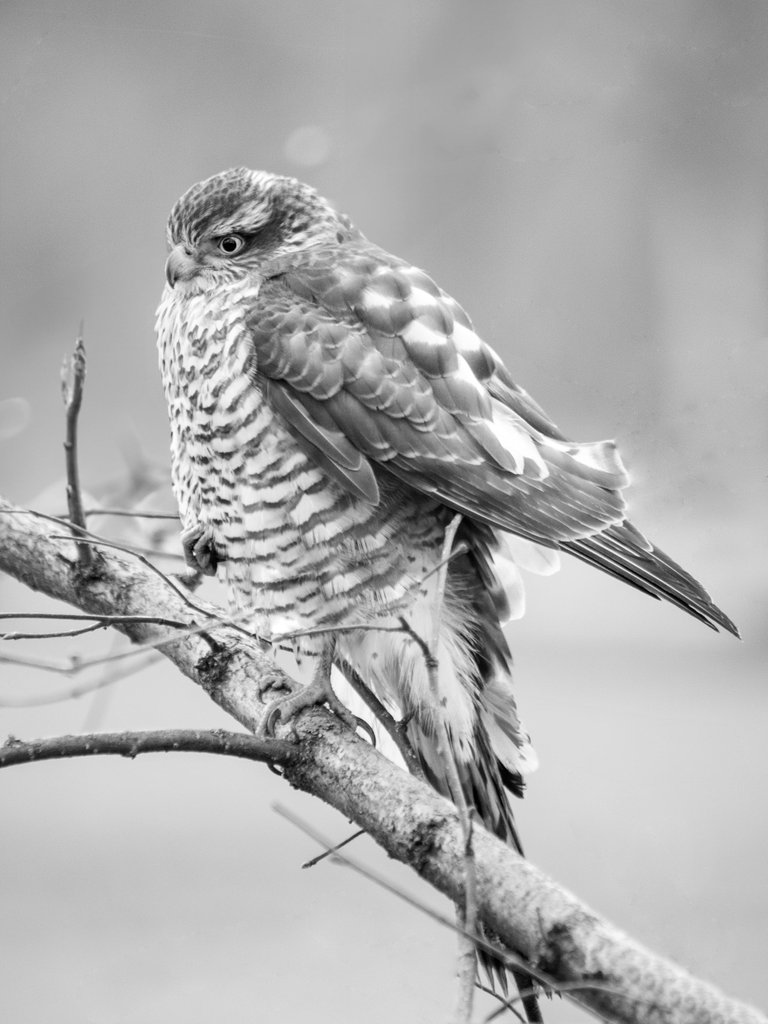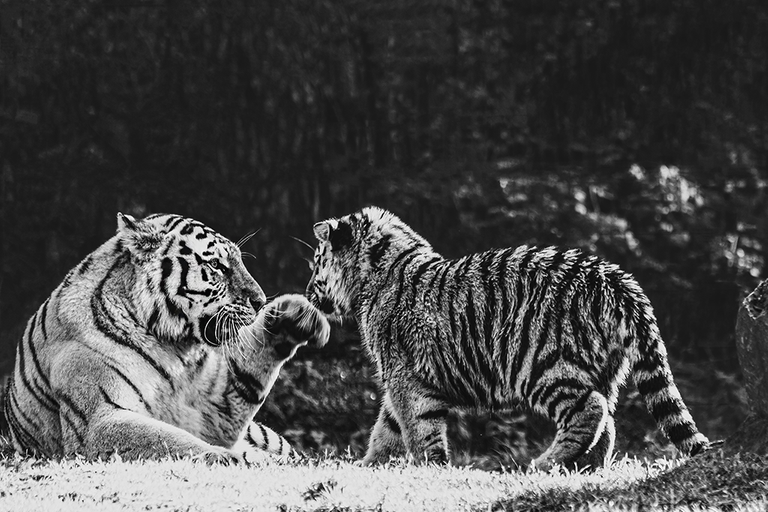Capture Timeless Beauty | The Art of Black and White Photography
Now and then, I always suddenly get a need to go back to basics. And by the base, in this case, I mean the calm and serenity, the contrasts, and the textures without color. That's right, now and then, I get a huge urge to think away the stimuli from the world and to look at everything in black and white. And that means, for me, shooting black and white. It gives me peace of mind when I distance myself from all the bright colors we are surrounded with these days, and somehow everything suddenly looks different when you learn to see black and white. All the colors in our lives have a message that can make you overpowered at times. And it is very liberating and 'enlightening' to filter that out for a while and go back to the essence. You may think I'm exaggerating here... but that's how it feels to me. And that's reason enough for me to share 'my' best tips for black and white photography with you. But be warned: black-and-white photography can be quite addictive! Do you think you can withstand this? Then read on quickly.

Tip 1: Look in black and white!
One of the hardest things I had to teach myself about black-and-white photography was training my eyes to visualize everything I saw without the colors. As I said, our whole life is made up of color. Our eyes register colors all day long. And our brain helps with that. As soon as we see a tree, our brain automatically registers the color associated with that season. It's unbelievable how much information we get from a simple color in our environment. And how our brains think. So visualizing your environment without colors is not that easy when you start with that. It's pretty much like developing a superpower! Have you ever thought that way? Now I have to add that life is not always black and white. So if you want to add some color to your black-and-white photography... be my guest.
Tip 2: Learn from the masters!
If you're looking for the secrets of black-and-white photography, you're sure to come across some legendary names. These masters of black and white photography have taken this art form within photography to great heights. For example, there is Ansel Adams. This master of capturing black and white landscapes captured the drama of nature as no one else could. Although I am not a street photographer myself, I do have a lot of admiration for Henri Cartier-Bresson. He was a street photographer in heart and soul, who captured the perfect moment without exception, and the black and white expresses the pure raw emotion of his photos. Finally, I would like to mention Dorothea Lange. The raw emotion in her photographs of the Great Depression is unique. They are all masterpieces, and the black and white enhances this feeling. Of course, many more photographers have delivered masterpieces in black and white. So let Google be your best friend and discover the secrets of the big names. Learn from this and create your style.
Tip 3: Choose topics that stand the test of time
Black & white always feels like a timeless form of photography to me. Much more timeless than color! But not every subject does equally well in black and white. So don't think if you take a photo in color, you can always convert it to black and white later, and that photo will still be just as great. Black and white photography calls for a much more thoughtful approach. Choose your subject carefully! You will have to look for contrasts, deep shadows, and bright highlights; textures, and shapes often come to life much more without color. It's your job to find them. I said it before, street photography and portraits are not so much my specialties within photography, but they lend themselves very well to black and white photography. It's a pity it's not so 'my thing.' But it is what it is. There are even more genres that lend themselves well to black-and-white photography. Architecture and landscapes, for example. As long as you remember that your photos should appeal to other people without color, you should be fine. And for those who don't know, dogs are certainly important to me, so for me, a photo of my dogs can stand the test of time. Remember, photography is very personal!

Tip 4: Light plus Contrast is grab your Camera!
What is the most important thing with black and white photography is the light and the contrast! So you will have to play with lighting to capture all the details. You want detail in shadows and highlights. And to achieve that, you will have to experiment with what works best for you. The thing to remember here is that a strong emphasis on contrast produces much more dramatic photos. A soft contrast, on the other hand, can lead to dramatic photos, while a softer contrast creates a more subdued and subtle atmosphere.
Tip 5: Textures bring your photo to life
In a black-and-white photo, it is a texture that is one of the ingredients that can bring your photo to life. Black and white photography has the power to bring out texture and detail like never before. Pay attention to surfaces, patterns, and textures to create visually interesting photos. My personal preference lies in the whimsical textures that nature has to offer me. But I also find it interesting to emphasize the structure and texture of their fur in animals in black and white photos. Yes, even though portrait photography isn't my thing, I do love animal portraits.

Tip 6: Experiment with filters and editing magic
In the world of black-and-white photography, filters can work wonders. For example, did you know that if you use a color filter, this filter blocks the complementary color? If you know that the complementary color of blue is red, then you also suddenly understand that if you use a red filter, the blue sky above your head will become a lot darker. This effect is often used to give a photo with a lot of aerial drama. A dark, dramatic sky with clouds moving forward creates a stormy effect in your photo. For portrait photography in black and white, a yellow filter can help to add some softness to skin tones. And if you use a green filter, your landscapes can look surreal. It is worth using a set of color filters in black-and-white photography. Experiment with it so that you know what it does and what your preference is. So you see, even if you want to think in black and white, you can't completely forget about color.
Tip 7: Learn and record!
The most important tip of all is to enjoy your experimentation in the world of black-and-white photography. The great masters also had to learn and most likely did not immediately make the beautiful photos with which they have become known. Watch, try, make mistakes, and learn. Challenge yourself and discover your style within this big world. It's your idea, your creation, that comes to life, and the best photos are the ones where you lose yourself and express your passion.
The bonus tip I have left is to remember to edit your photos with care. You can adjust exposure, contrast, and tonality to create the mood you want, but be careful not to overdo it. Too much editing can ruin the subtlety of black-and-white photography.

And most important of all ...

i always take extra pictures in colour to convert later to black and white , colours can distract you from looking at the details of the subjects in the photo .
True, and indeed, our brain is much more focused on registering colors than textures. Our brain recognizes colors directly and links those colors to a subject. It's different with textures.
that is why i love to browse in the black and white community , from time to time to get other inspirations for my own photography .
View more
Congratulations @hetty-rowan! You have completed the following achievement on the Hive blockchain And have been rewarded with New badge(s)
Your next payout target is 12000 HP.
The unit is Hive Power equivalent because post and comment rewards can be split into HP and HBD
You can view your badges on your board and compare yourself to others in the Ranking
If you no longer want to receive notifications, reply to this comment with the word
STOPCheck out our last posts: